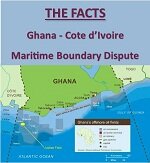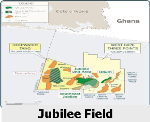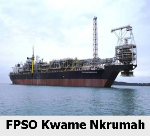IEA’s 2015 Petroleum Transparency and Accountability (P-TRAC) Index Project
- Details
- Created on Monday, 02 March 2015 14:10
Revenue Transparency
We have observed steady progress in efforts to improve revenue transparency over the previous two reports. The main improvements have come from the frequency and availability of reports. However, we did not find any improvement in the quality of the reports. One component of revenue transparency where there is much room for improvement is the institutional environment. Progress in this area hinges on Parliament passing two important pieces of legislation that are currently before it. These are the Right to Information Bill and the Petroleum Exploration and Production Bill, both of which have gone past the first reading stage. Speedy passage of these Bills will significantly help to improve transparency and accountability in the industry. Other Bills that are currently in draft form include the Ghana Extractive Industries Transparency Initiative (GHEITI) Bill, the Local Content and Local Participation Bill, and the Marine Pollution Bill. We strongly advocate the passage of these Bills.
Expenditure Transparency
In the area of Expenditure Transparency, we observed an improvement in the frequency of the reports. However, again, we found no change in the quality of the reports. We also observed improvement in our Projects sub-index, which tracks progress in the allocation of funds and distributions of projects under the Annual Budget Funding Amount (ABFA). In the absence of a long-term development plan for Ghana, decisions on expenditures in the priority areas are at the discretion of the Minster for Finance. Neither Parliament nor the Civil Society Organisations play any major role in decisions on the allocation of funds or projects to be funded. The IEA advocates the formation of a committee with representation from all major stakeholders to advise the Minister on the expenditure program.
Contract Transparency
Of the four components of the P-TRAC Index, Contract Transparency showed the least improvement over the reporting period. The only improvement comes from the establishment of the Petroleum Commission to regulate the sector and to advise the government on the award of contracts and licenses. However, full public disclosure of contracts and the processes involved are lacking. We advocate a more open and transparent process of awarding contracts and licenses. We note that the research capacity of Parliament remains week. We urge the government to adequately resource Parliament and the other oversight agencies to enable them more effectively discharge their duties under the Petroleum Revenue Management Act.
The Ghana Petroleum Funds
Transparency in the management of the GPFs showed the highest improvement out of the four components of the Index over the reporting period. The maximum score was attained in four out of five questions. The key area requiring improvement here is the publication of information on the performance of the GPFs.
Policy Recommendations
The study makes the following recommendations:
- We advocate the speedy passage of the Right to Information Bill and the Petroleum Exploration and Production Bill, which have both gone past the first reading stage. Parliament should give serious consideration to the following draft Bills: the Ghana Extractive Industries Transparency Initiative Bill, the Local Content and Local Participation Bill, and the Marine Pollution Bill. Passage of these Bills will greatly enhance the level of transparency and accountability, not only in the oil and gas sector but also in the other resource industries.
- We also advocate speedy passage of the Budget Act to enhance Parliament’s ability to conduct comprehensive analysis of the Budget.
- We recommend the formation of a committee with representation from all major stakeholders to work with the Minister of Finance in selecting projects for funding under the ABFA.
- To enhance transparency in the award of contracts and licenses, we recommend a more open and transparent process of awarding contracts and licenses, with more public disclosure of information about the process. In particular, we advocate a points-based system for assessing licenses and the award of contracts.
- Oversight bodies such as Parliamentary Committees (e.g., the Public Accounts Committee and the Select Committee on Minerals and Energy) and the PIAC must be adequately resourced to enable them function more effectively in their respective roles.
- PIAC should be funded directly from the Consolidated Fund and not the Ministry of Finance, to enable them function more independently
#sthash.elh1CoSL.dpuf





